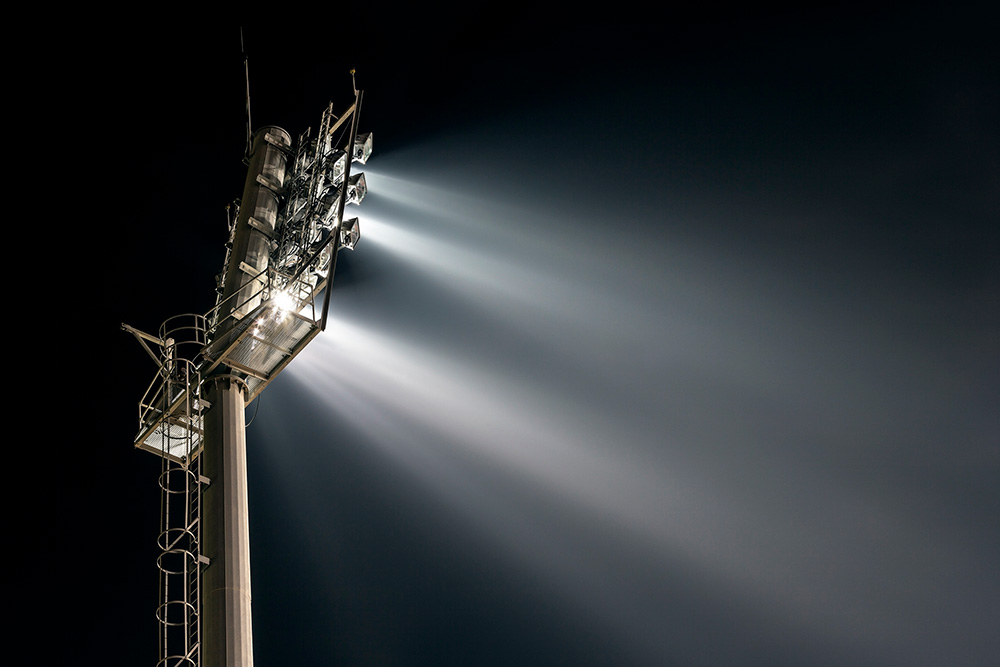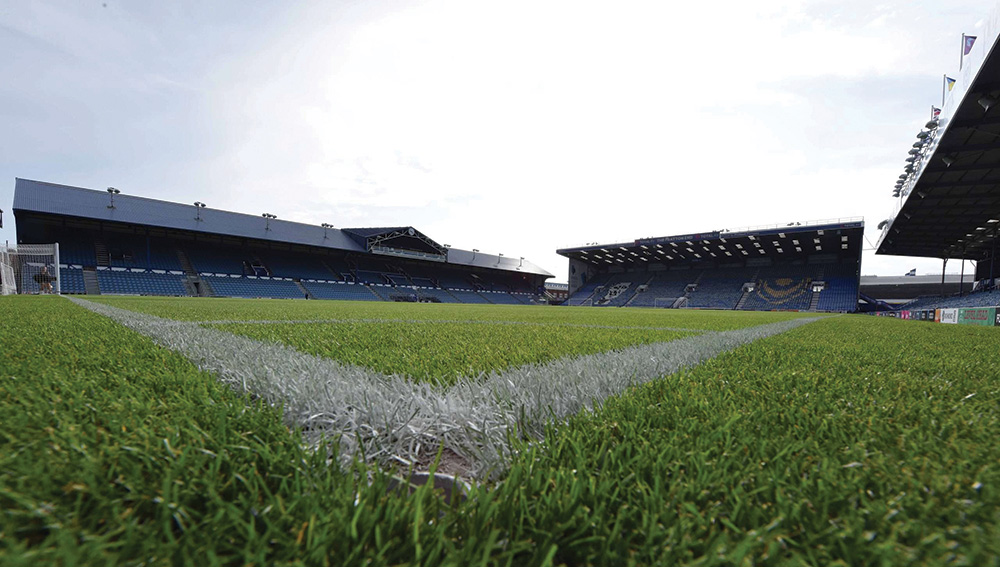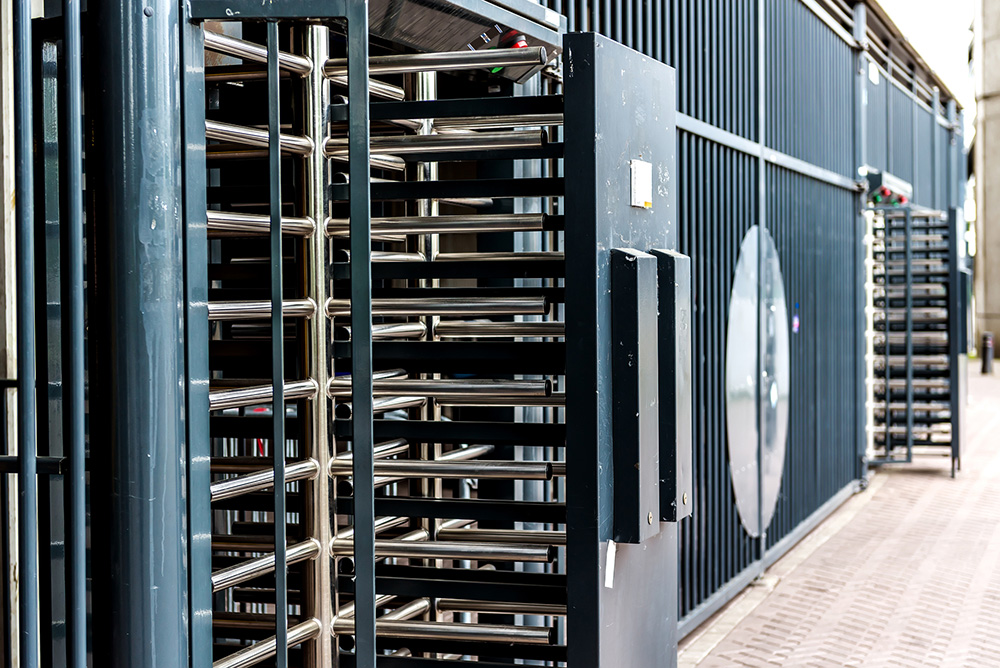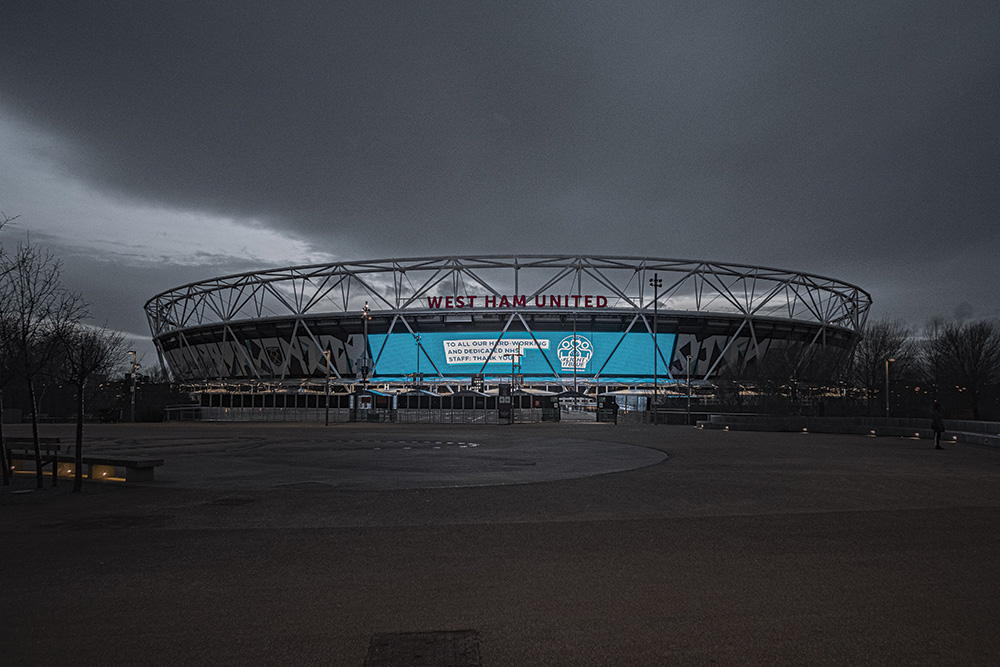Don’t Score An Own Goal With Your Back‑Up Power Systems

The recent floodlights failure that caused the postponement of the Portsmouth vs Millwall game highlights the severe consequences that power outages can have for football clubs, comments Russell Pritchard, sales manager at emergency power specialists, Central Power Services.
After all, nobody wants to see power failures leading to abandoned matches and thousands of disappointed fans leaving the stadium early, as happened at Fratton Park. However, there are even more critical assets in football stadiums that simply cannot fail for the safety of everyone attending a game - especially when it comes to the need for quick evacuations.

Lights Out
We can't be certain what caused the floodlights to fail at the Portsmouth vs. Millwall game, although Portsmouth’s chief executive has said it was due to a substation issue that the club had no control over.[1]
Regardless of the specific cause and background of this incident, it serves as a stark reminder of the importance for football clubs to have robust, well‑maintained back‑up power systems.
Of course, it’s important to highlight that floodlights in football grounds present unique challenges due to their massive power requirements and the operational nature of certain bulb types (some of which can need time to cool down and restrike), which can result in rare outages that are hard to prevent.
For this reason, Premier League clubs have processes in place to avoid such threats. For example, all Premier League teams use generators to power the whole ground during games (including the floodlights), which is known as a ‘fail to mains system’. With this approach, the mains serves as a secondary source of power, rather than the other way around. This avoids the 10‑15 second wait for the generator to start up in the event of a failure.
However, due to the substantial costs involved with this approach, many clubs lower down the league pyramid simply can’t afford such options. In short, for all but the richest clubs in the UK, the risk of rare failures of non‑critical features such as floodlights are something that can’t easily be avoided. Indeed, the Fratton Park incident followed a similar failure at National League South fixture AFC Totton vs Gosport Borough just a couple of weeks prior.
Critical Life Safety Systems

After all, safety is always paramount during a football match, and Portsmouth specifically made the decision to cancel the Millwall game ‘in the interest of everyone’s safety’. The club's chief executive said that: “We got to a point where the floodlights were back on but there was still an issue with non‑emergency lighting and CCTV…so we had a decision to make in terms of crowd safety.”[2]
Dealing with large crowds all leaving at once is always a sensitive operation, and one that relies on a range of systems all working together at the best of times. In instances where a particular aspect of the stadium environment has been deemed unsafe - particularly at night time and in the cold - these systems become even more critical to avoid panic, unrest and potential crushing as fans are ushered out.
Everything from turnstiles and public address systems to smoke extractors and fireman’s lifts are essential in enabling fans to safely evacuate the ground - so none of them can fail.
Assessing Back‑Up Systems
Fortunately, clubs at all levels can take proactive steps to ensure these critical life safety systems particularly remain operational in all circumstances.
First and foremost, it's crucial for clubs to have a clear plan outlining which systems must stay functional at all times during a power failure. Once these essential systems are identified, the next step is to evaluate current back‑up power arrangements to ensure they can handle rapid switchovers and maintain continuous supply.
If not, they need to be upgraded as a priority. Nobody wants a situation where something critical fails in a blackout because the generators at a ground have been placed under too much pressure to operate as anticipated.

Maintaining Optimal Performance
However, it’s not just an inadequate back‑up power system that can cause issues - poorly maintained systems can be just as unpredictable. For that reason, it’s vital for clubs to regularly review maintenance schedules for generators and other back‑up equipment.
Indeed, a robust process on paper means little if it doesn't perform when needed; and, over time, maintenance routines can become lax, and critical steps might be missed. This can lead to equipment failure in the moment it is most needed.
A strong maintenance process should include the following:
- Regular generator tests (every month as a minimum) to ensure everything works and to keep moving parts lubricated.
- Regular inspection of the generator - including fuel and coolant hoses, engine heaters and battery chargers.
- Check the fuel is topped up and fresh. Remember, diesel can begin to degrade after around a year.
- Make sure the oil’s topped up too; many generators have automatic shut off functions if the oil is running too low.
In addition, all staff should be trained in how to make these checks and what to do in the event of an unexpected power outage.

Top Of The League
While it can be difficult to implement back‑up power processes that cover every piece of equipment in energy‑hungry stadiums, there are some essential life safety systems that simply cannot fail. Regularly assessing the emergency power requirements and maintenance processes for existing back‑up assets can significantly reduce the risk of any catastrophic failures.
[1] https://www.bbc.co.uk/news/articles/c7042e47608o.
[2] https://www.mirror.co.uk/sport/football/news/portsmouth-chief-incident-match-cancelled-34203863
Click the article to enlarge it.












































